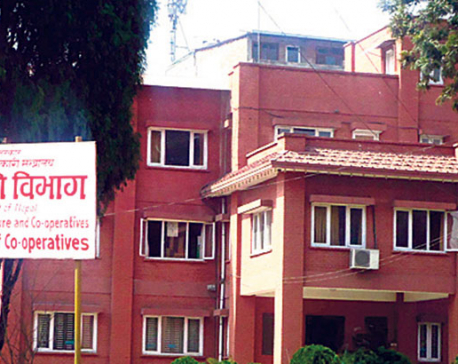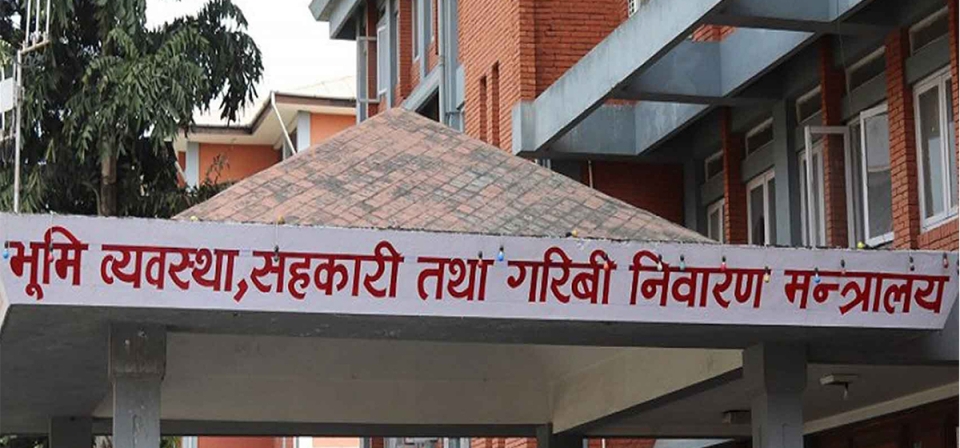
OR
#OPINION
Addressing Critical Issues Facing Nepali Cooperatives
Published On: February 28, 2024 08:30 AM NPT By: Dr Bishwa Mohan Acharya

Dr Bishwa Mohan Acharya
Dr. Acharya is former director of the National Cooperative Development Board (NCDB) and former Cooperatives and Poverty Expert of the Ministry of Cooperatives and Poverty Alleviation, Government of Nepalnews@myrepublica.com
Cooperatives are in existence in almost all the countries of the world with an objective to augment the social, economic and cultural needs of the members by doing business based on the members’ needs, aspirations, skills, knowledge and occupation/profession. Contribution of cooperatives can be manifold if they are well organized and address the needs of the members with members’ active participation. They help to create wealth, employment, and income generating opportunities for the members and community where they are working. They also help create peace and harmony in the community by adopting coexistence with self-help and cooperation.
Introduction
Cooperatives have been promoted in many developing countries including Nepal to build harmonious societies to address issues such as unemployment, community/rural development and as a means of creating income generating activities, especially to augment the socio-economic condition of the deprived community.
Cooperative institutions are people’s organizations which are formed by the members (voluntarily), owned by them (by purchasing shares and on payment of prescribed admission fees), and run by them (democratically and in accordance with the principles of cooperation), to satisfy their social and economic needs (through active participation and mutual help).
A cooperative is based on basic and ethical values. The basic values include self-help, self-responsibility, democracy, equality, equity and solidarity. Whereas, ethical values include honesty, openness, social responsibility and caring for others.
Similarly, cooperatives operate under the seven fundamental principles that are the core values of cooperatives. The cnternational Cooperative Alliance (ICA) in its centenary annual general meeting held in 1995 adopted seven fundamental principles of the cooperatives, viz, voluntary and open membership, democratic member control, members’ economic participation, autonomy and independence, education, training and information, cooperation among cooperatives and concern for community.
In the context of Nepalese cooperatives, there are various critical issues that should be resolved without any delay by all the concerned bodies. If we analyze the issues of cooperatives there are many issues that have made cooperatives under a questionable organization. The issues can be identified as identity, structural, legal, objective, governance, and many more. Identity issue has arisen because most of the cooperatives are formed just for one’s personal benefit. Cooperatives have their own values and principles. But still there are confusions about whether the cooperatives are members' organizations or they are government’s? Are they independent business organizations or are they organizations surviving with the government loan and/or grants?
Firstly, the cooperatives are lacking to build up their images. Many of the cooperatives are heavily engaged in savings and credit activities without fulfilling members’ needs and aspirations. Even the policy makers, bureaucrats, development workers and the government have a mindset that the term “cooperative” means only savings and credit cooperatives.
Secondly, it is visualized that some shrewd people are organizing their own business organization using the name of cooperative and are using the benefits of cooperative and members’ deposits by investing in their own businesses. They are also cheating the common people by branding the cooperatives as financial institutions.
Third one is the membership issues. With the lack of common bond in the cooperatives, the large size of membership implies that the voice of an individual member drowns in the multitude of voices. As a result, heterogeneous memberships are seen in the cooperatives creating conflict among the members and genuine members are left aside and have become just a member without representation in the committees. An example of a clear common bond can be visualized in the Cooperative Societies Act, 1959 where it is clearly mentioned that to form an agricultural cooperative there must be peasants as members (Sec. 7 (2)).
The structure of cooperatives in Nepal is manifold and cumbersome which is made by the Act. The cooperatives in the world are being slimmed and effective by making two or three tiers – primary, tertiary and federal. But in the context of Nepal, there are seven tiers including specialized cooperatives. Between the primary cooperatives and federal cooperatives there are primary societies, district unions and super district unions, provincial unions, central unions, specialized unions and federations. These unions are used as a political organization to replace political activists.
Though the Act has clearly made the provision of working areas of the primary and tertiary unions, the primary cooperatives are still working beyond the stipulated working areas of the cooperatives; especially the savings and credit cooperatives are still collecting deposits from the non-members inside and outside of their working areas. The regulation of this kind of activity is not strictly enforced by the concerned bodies (local government).
Similarly, the cooperatives registered as single purpose are doing multipurpose activities and the multipurpose cooperatives are doing single activities in many cases. The situation was also found during a study made by the Policy Research Institute (PRI) Nepal in 2019. The problem is further aggravated as most of the savings and credit cooperatives are heavily involved in lending to real estate activities. Oriental, Guna, Civil and now many more such cooperatives in Kathmandu and other cities are declared as problematic and such cases are rising almost every week.
Effective governance structure is crucial for the credibility of cooperatives and for members’ confidence. Unless cooperatives are better governed, they cannot be effective for their members. The federal body of the cooperatives must perform in tune with the ideology of cooperatives. Besides promoting the interests of affiliated cooperatives they are also supposed to follow a strong governance structure for the growth of cooperatives and their businesses considering highest priority for social responsibility.
Governance in Nepalese cooperatives is not satisfactory as many of the cooperatives are far behind applying good governance in their organization. They are not holding AGM on a timely manner, there is no transparency in their activities, the same person has been holding the post of executive for a long time, there is no leadership and management succession policy, etc. Many of the primary cooperatives are used by some people as an organization for doing family business. And the apex levels are also involved in doing businesses not directly benefiting their members. Similarly, failures to integrate members’ needs into cooperative business, failure to discriminate against non-members, failure to maintain independence, loss of member loyalty, failure to maintain image and reputation, securing the future of cooperatives are the major governance problems of cooperatives.
The way forward
Cooperative is not for everybody. It is for them who cannot fulfill their needs and aspirations doing income generating activities based on their skills, knowledge and occupation/profession. Many successful cooperatives in the world have become exemplary because they are organized by the needy persons mostly in grief, pain and dire need of cooperation with meager means and resources. Highly successful cooperatives in the world have always prioritized and regarded their members as the primary and exclusive focus within the cooperative structure.
Some of the exemplary cooperatives are Anand Milk Producers’ Union Ltd. (AMUL), India, Mondragón, Spain, Milk Vita, Bangladesh, Self-employed Women’s Association (SEWA), India, Unicorn Grocery, UK, and Land O’ Lakes, USA and many more.
A strict compliance to law and policy should be followed by the concerned organization (s) during the period of registration in order to make a cooperative vibrant, successful, member oriented and in accordance with the cooperative values and principles. It will help organize cooperatives by those who are in a dire need of membership. It is also important to allow only those persons as members according to the nature and objectives of the cooperatives by maintaining a common bond.
In the context of Nepal, the Department of Cooperatives is the sole regulatory body of the cooperatives and a body with the power of registering cooperatives. As there is no specific service for cooperatives under the Civil Service Act, the employees joining the department are transferred from the different ministries and departments. Cooperative is a special kind of organization, therefore, the employees joining the department must be vigorously trained in cooperatives at least for three months as well as the department should be strengthened so that it can effectively conduct the feasibility studies of the proposed cooperatives during the time of registration. As there is a separate Ministry of Cooperatives looking after the overall aspects of cooperatives, there is no need for other organizations just for appointing party activists and workers in such an organization. National Cooperative Development Board is one of them which was established in 1992 as a policy-making body. The board since a long time has been deviating from its objectives and has been an organization of dumping political activists as members and office bearers in its executive committee. As it is totally defunct, it is necessary to dissolve the board and save millions of rupees every year from the exchequer.
Likewise, the research and studies on cooperatives is almost non-existent in the country. The importance of research and studies is neglected by the cooperatives (mostly apex bodies), regulatory bodies and mostly the government including the concerned ministry, department and also the National Planning Commission. It is highly essential to establish an independent body to conduct exclusive research and studies on cooperatives and rural development like Institute of Rural Management (IRMA), and Vaikunth Mehta National Institute of Cooperative Management (VAMNICOM) India, Cooperative College of Malaysia (MKM), Institute for Development of Agricultural Cooperation in Asia (IDACA), Japan, Sri Lanka Institute of Cooperative Management, etc. Also there should be collaboration with the national and international universities and research organizations for research, training, study and publications.
It may not be an exaggeration to say that the Nepalese cooperatives are entangled with high political influence. Almost many of the primaries and federal bodies are run by political persons with an objective to clinch power in the name of cooperation. As a result, cooperatives have virtually become a political organization. The law should prohibit those persons to be elected in the committees of the cooperatives who are parliamentarian or holding the political position as it may support conflict of interest.
Training and education at all levels of cooperative members is required. In addition, the employees as well as the government employees deputed for the development and regulation of cooperatives should be provided a vigorous training and education towards inculcation of entrepreneurial values as well as the best practices in management, finance and governance. This will encourage cooperatives to be more businesslike, efficient and strategic in identifying new value addition features for the benefits of their members.
Cooperation among cooperatives should be enhanced, especially through vertical integration with absolute role clarity so as to improve the bargaining power and flexibility of the cooperatives to operate globally. In this context, the role of tertiary and mostly apex bodies are noteworthy. But the tertiary and apex bodies are a total failure in promoting the products of their member cooperatives. In most of the cases the tertiary and apex bodies are doing the same business under the jurisdiction of the primary and district cooperatives being competitors, not facilitators.
Conclusion
Specific provisions in law should help gear up genuine and vibrant cooperatives. Strictly following the common bond, dealing with only members, less bureaucratic system, business collaboration with the national and international cooperatives, private and public sectors, extensive training and education, implementation of law by discouraging the unneeded persons joining cooperatives can make cooperatives a tool for sustainable development and help to fight poverty, inequality, maintain peace and harmony in the society and make the country prosperous.
You May Like This

Six individuals arrested for stealing Rs 3 million from 11 cooperatives
KATHMANDU, April 22: A group of six individuals has been apprehended for their alleged involvement in stealing from cooperatives in... Read More...

Liquidity crisis in cooperatives: NCF urges cooperatives to stop distributing cash dividends for now
KATHMANDU, August 12: The National Cooperative Federation of Nepal (NCF) has urged its member cooperatives not to distribute cash dividends to... Read More...

Ceiling for interest rate of credits of cooperatives fixed at 16%
KATHMANDU, Aug 3: The government has capped the lending rate for cooperatives at 16%. ... Read More...




Just In
- KMC adjust office hours, services now start at 9AM
- Five-match T20 series: first match between West Indies 'A' and Nepal starts today
- Govt yet to pay Rs 60 billion to contractors
- Nepal’s poorest district identified as Bajura, richest as Mustang
- Wind storm likely at a few places of Koshi and Sudurpaschim
- EVs adoption in Nepal surge in Nepal with government support measures
- Mayors' Forum urges Finance Minister Pun to settle electricity dues
- By-Election: Voting underway in Ilam-2 and Bajhang-1(a)














Leave A Comment